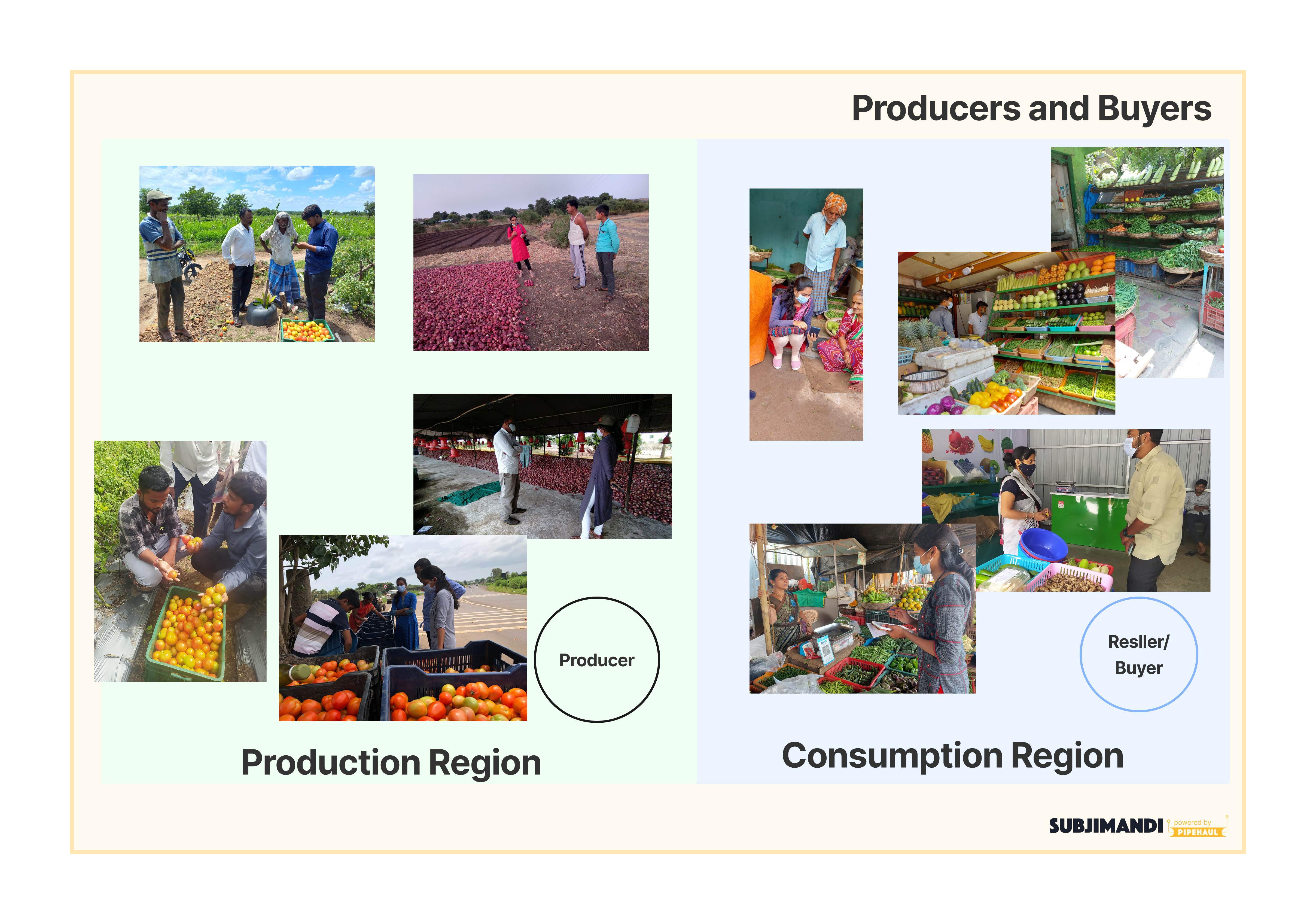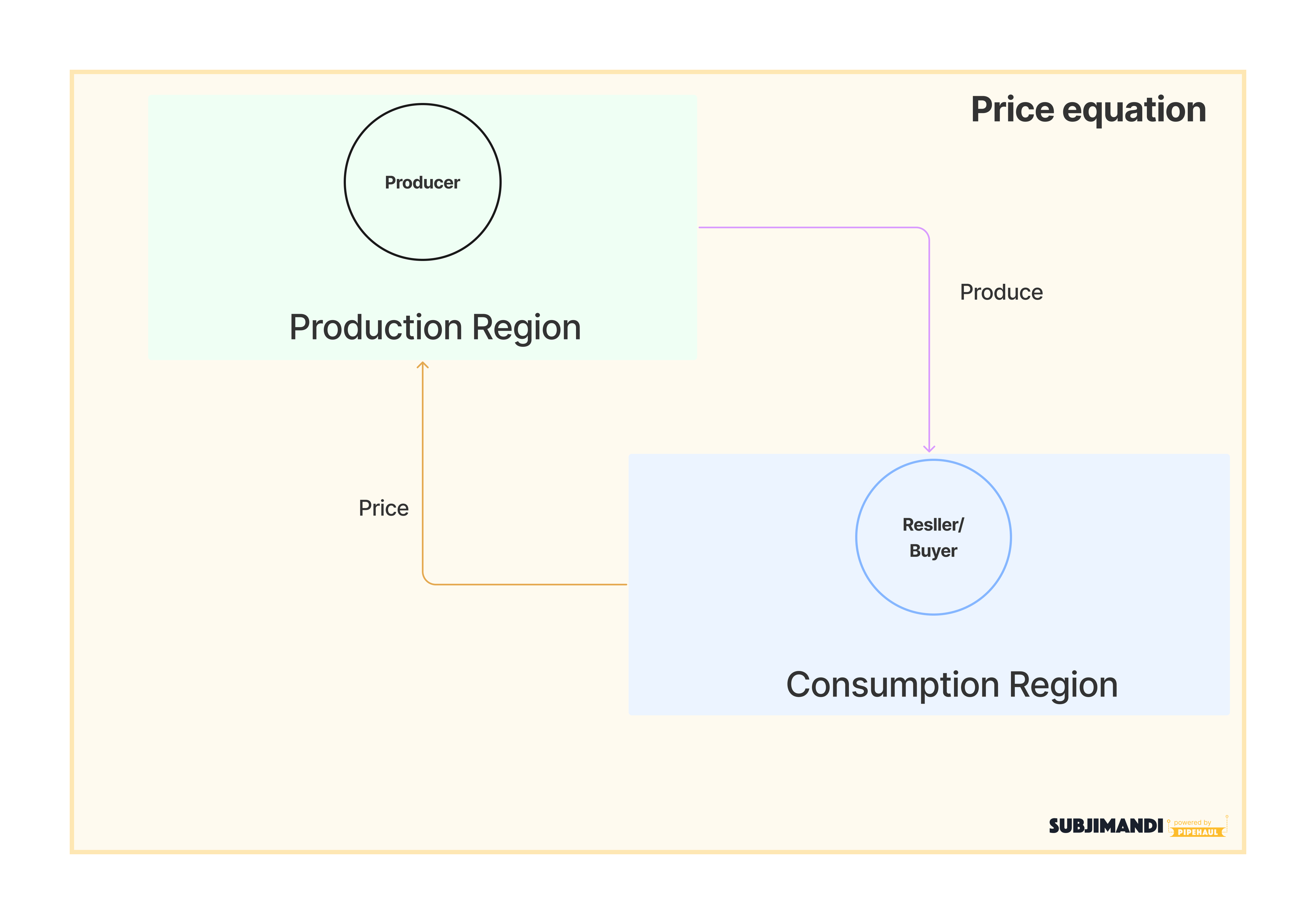Distributing our future: Produce Markets Edition
Written by

Vivek V.S
One of the issues we are working towards solving in agri-space is how we prepare our team for the future.
Our team members on the front lines are yet to be well versed on the capabilities of our current world and economy. We are aware of the technology, digitisation and know how of the tools. But, not the potential it could unlock.
The world we inhabit is powered by information being transmitted instantaneous through internet. We are in the age of knowledge economy. Yet, these shifts are not prevalent in agri-space we currenlty operate.
⚠️: Agri-space consists of multitudes. It has various angles, approaches and stakeholders involved. This space is subject to market, perception and political risk. This post is our own opinion from experience. Please take any writting from us for infotainment purposes only. This is not advice on how to solve problems, please consider doing your own research.
Framing problems
We at Subjimandi.app are operating in produce markets, a growing segment within agri-space. The function of building a marketplace in this domain has been fulfiling but tiring work for our team.
Over the course of the last 1 year we have documented the challenges that we faced and the approaches we took to overcome them. Each time this happened, we were observing the disconect of the way our front-line team framed the problem.
The more we focused on solving the disconnect, the better we understood the issue on our hands. Approaching it as an opportunity, we doubled down on the work required to build the frameworks and mental models to bridge the gap.
Front Line Work
The team working at the front line are the face and brand of our marketplace. Unlike traditional mandi(s) we are distributed in our operations.
The success we currently profess directly stems from the stellar work our team does on the field. The learnings we are obsessing about were highlighted because of the challenges our team experienced.
We wouldn’t have procured more than 700 field level procurements if not for them. We couldn’t have sold to more than 500 general trade buyers( fresh produce shops) without their conviction and convincing traits.
Our environment
Post harvest produce supply chains are wide ranging in nature. We are functional in production and consumption region within the domestic market, to be more specific, districts of Maharashtra and Telangana.

An issue on the topic of domestic produce supply chains which is often discussed but under emphasised is the nature of stakeholders. A large section of producers(farmers) and buyer(retailers) are individuals/families functioning as businesses. They are un-organised in the nature of operations and trade with a set of notions about profits and costs.
For example, price of one specific produce is transmitted as a signal of true value between the production region and consumption region but it neither captures the type of produce required, the region of produce and logistical cost involved in fulfiling the transaction. Yet, price is the only metric on which the trade takes place and value of produce is perceived. Trade ensues because both buyers and producers are operating in a trade where price satisfises their varying business requirements.

The complexity over here is that both sourcing and consumption regions are not exclusive to each other. So, the actual set of prices transmitting between these regions are multifold. One such complexity is depicted visually.

Adding further to it is the issue of produce originating from all of these regions cannot be benchmarked with each other as it is not certain they are similar. With the reliance of price as the only metric, the complexity of the market ends up in chaos. Which produce gets what price is anyone's best guess.
When we ventured into this space as another entrant integrating produce between production and consumption regions, we realised that our approach cannot be same as the ones before.
In order to change the way produce market functions, we deciced to change how we function. We decided to focus on produce and generate trade on the basis of produce along with price.
Unfortunately, this is not the prevalent notion in the ecosystem. Finding people equipped in understanding the counterintuitive nature of produce markets and complexities involved in it have led us into the process of training our team on the front lines.
Finding team members from agri-space joining us to scale our operations has been a challenge. Lack of exposure to the broader context in market studies, stakeholders management and complexity theory in the agri-space with the current circumstances of world we inhabit has been an obstacle we are currently looking to overcome.
Concepts and models in play.
Business and Marketplace Concepts:
The objective over here is to give an orientation about the possibility of marketplaces and the way the information and knowledge economy changes the way produce markets can work. Some of the concepts we learn from and try to emulate in our execution:
- Controlled processes in uncontrolled environments.
- Smile curve theory depicting the relative value creation in a supply chain derived from Stratechery's writing.
- Thick and thin markets from Alvin E Roth.
- Elinor Ostrom's work on governance of commons.
- Differences in Aggregator and platform marketplaces.
- Search optimisation via marketplaces.
Personnel Up-Leveling:
- JTBD framework of value creation.
- Demand Side Sales.
- Checklist Manifesto during operational planning.
- Distributed and asynchronous collaboration to opeate productively.
This is just the start. We see a great potential in converging such concepts to solve some of the complex problems in the agri-space.
In order to achieve scale, we are looking towards future team members. This our attempt at signalling to you to come join us in this endeavour. Check out our jobs section and see if there is role for you. If there isn't one, just mail us anyway. We are eager to find the right set of people or better if they find us before we search for them.
Future proofing: Involving our Stakeholders
The extension of the work we do internally can also benefit the stakeholders we facilitate. More people contributing to the problem solving, better are the odds of us actually solving them.
In a conversation with the smart folks at CTQ, Harish alluded to an often mentioned phrase that led me to writing this post.
Future is already here, it is just unevenly distributed
We do subscribe to this notion and as a "new age mandi" in produce markets, we would like to help contribute in bringing the future to our team and our stakeholders collaboratively.
